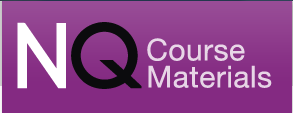With SLF 2014 now only 5 weeks away we hear for one of this year’s keynote speakers, Dr Frank Dick OBE, on his thoughts about how people are prepared to take ownership of their lives and the vital role that teachers and mentors play.
A Winning Lead
Whether as teacher, coach or mentor, our purpose is to prepare the pathway that takes people from who they are to who they will become. My thinking in this was mostly shaped by two life changing books: Richard Bach’s Jonathan Livingston Seagull which to me was about taking the risk of being different; and The Prophet which persuaded me that the coach is to the athlete as Kahlil Gibran saw the parent to the child – the parent is to the bow as the child is to the arrow.
Both of these seemed to point to preparing people to take ownership of their lives – to doing things right and to do the right thing.
We are not in total control of conditions in our lives, nor of results, but we are of our attitude to dealing with them and of our performance. And because life is more like a white water ride than a flat water glide, our attitude must find us controlling the controllables and being agile to turn uncertainty and adversity to advantage. In this, focussing on the performance of those whose development we influence and our own, is key.
Our behaviours, it seems to me, must work to a simple acronym: “O.D.D.” Own: take personal ownership of each moment to turn it into opportunity. Decide: take considered risks in decision making to turn opportunity to advantage. Do: just do it – effectively and excellently.
Giving ownership means not only preparing people to be let go (arrow) but being prepared to let go (bow).
Whether teaching, coaching or mentoring or being taught, coached or mentored, the most important quote to reflect on is Arie de Geus: “Probably the only sustainable advantage we have, is the ability to learn faster than the opposition.” The key to this, clearly is in being prepared to learn.
“Being prepared” is about attitude (again!) and process. The attitude part is clear and must be there every step of the life experience pathway towards who we will become.
The process starts with learning to learn and having in place the “machinery” to learn. For example, before a Commonwealth Games you must put in place how you will collect the necessary intelligence to debrief meticulously all that has influenced the performance and results.
In all of this we might agree that there are some things in life we can be taught, and others we can only learn.
Early in our life experience pathway of shaping personal and professional growth, we are taught the “science” for our education and development role. As we proceed, through experience, we learn the “art” of translating the science to action excellence by effective decision making.
The trouble, however, as Vernon Law avered, is: “Experience is a hard teacher, because she gives the test first and the lesson after.”
Yet if we are to learn the art of delivering our purpose in education, we must be exposed to the challenge and pressure of experiencing the untrodden path. It is by taking such risk that we turn fear to courage in the process of making right judgement calls.
It is important to get this right. The learning experience must be planned to ensure it is appropriate for the intended lesson, and we must have a critical competency set in the person responsible to teach, coach or mentor following the experience.
To return to our purpose: by preparing the pathway well, we not only develop people for their arena, but through the process for a better life. We not only develop them to improve performance, but to deliver it under pressure, on the day.
Want to hear more from Frank? Then register for SLF 2014 today.
 You may have heard of TeachMeets, where teachers take turns to share their practice? Well, the learners of Brydekirk Primary in Dumfries and Galloway Council are running their own LearnMeet.
You may have heard of TeachMeets, where teachers take turns to share their practice? Well, the learners of Brydekirk Primary in Dumfries and Galloway Council are running their own LearnMeet.![]() One – Post messages for the Brydekirk young learners using the tag #learnmeet on the Glow Learners’ community at http://bit.ly/learnershome
One – Post messages for the Brydekirk young learners using the tag #learnmeet on the Glow Learners’ community at http://bit.ly/learnershome![]() Two – Take part in the event live via Glow TV – Register now in Glow TV to take part.
Two – Take part in the event live via Glow TV – Register now in Glow TV to take part.

 This space is on Glow O365, so it is best to log into Glow (eg on the
This space is on Glow O365, so it is best to log into Glow (eg on the 














































